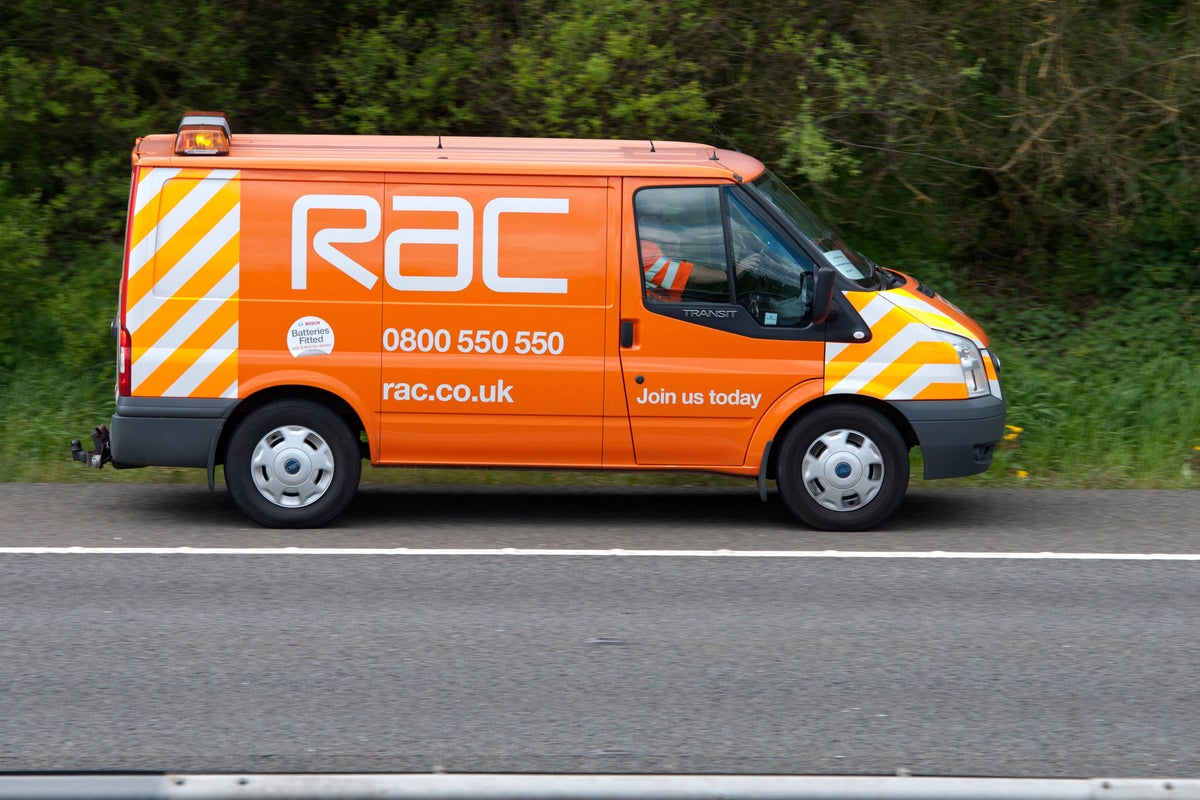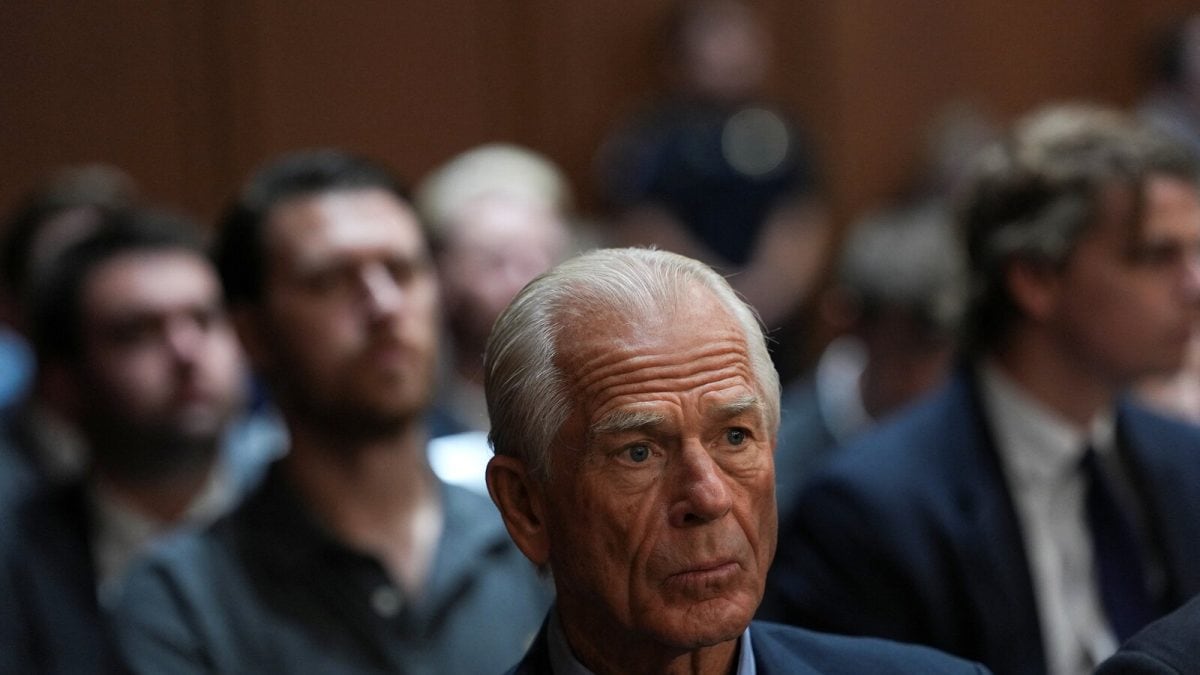Business
RAC revenues and profits lift after member numbers reach 15m

Vehicle breakdown specialist RAC has revealed stronger revenues and profits after it saw member numbers grow to 15 million.
The breakdown, insurance and maintenance firm reported that revenues grew by 8% to £411 million over the first half of 2025, putting it “on track” for another year of growth.
It said this included growth across each of its three main divisions.
The 128-year-old business said it is “confident” about its outlook for the rest of the year and for the longer term.
This came after membership numbers grew to 15 million from 14.1 million a year earlier.
RAC also reported that group earnings before tax, interest, depreciation and amortisation, grew by 12% to £152 million over the half-year.
The roadside assistant giant is owned by CVC Capital Partners, the Singaporean sovereign investment fund GIC and Silver Lake Partners.
Sky News reported in July that the firm’s owners were preparing to offload the business in a potential sale or stock market float, which could value the RAC at about £5 billion.
Dave Hobday, chief executive of the RAC, said: “2025 is set to be our 14th year of consecutive growth and I am delighted with our strong first-half performance and the continued progress we have made towards our vision to be the UK’s number one for driving services.
“Through our three complementary offerings: breakdown; insurance; and service, maintenance & repair; UK motorists are increasingly choosing us as their one-stop-shop at every stage of their driving journey.
“During the half-year period, we welcomed 500,000 new breakdown members and 10,000 motor insurance members, while our expanding team of mobile mechanics delivered more than double the number of repair and maintenance jobs.
“At the same time, our ongoing investment in AI, digital, and data accelerated performance across the board.”
Business
Commodities watch: Gold seen climbing on safe-haven buying; silver may correct after record highs – The Times of India

Gold prices are expected to extend their upward trend in the coming week, supported by safe-haven buying and expectations of policy easing by the US Federal Reserve, while silver may see a phase of consolidation after its recent sharp rally, analysts said.According to news agency PTI, market participants will closely track a series of global macroeconomic indicators, including inflation data from major economies, the US Personal Consumption Expenditures (PCE) index, GDP numbers, PMI readings and weekly jobless claims. These data points are expected to offer fresh signals on the future course of US monetary policy.According to Pranav Mer, vice president, EBG – commodity & currency research at JM Financial Services Ltd, investors will also keep an eye on economic data from China, which is particularly important for industrial metals. “Among other developments, US President Donald Trump’s speech at the World Economic Forum and the Supreme Court judgement on trade will be most important to watch,” Mer said, as quoted by news agency PTI.On the domestic front, gold futures on the Multi-Commodity Exchange (MCX) gained Rs 3,698, or 2.7 per cent, over the past week. Prices touched a record high of Rs 1,43,590 per 10 grams on Wednesday before easing slightly.Mer said gold prices were partly supported by a weaker rupee against the US dollar. However, some gains were trimmed on Friday due to profit-booking and long liquidation. “The risk premium eased following the US President’s softer tone on Iran, better-than-expected jobs data, and a firm dollar,” he added.In overseas markets, gold futures on Comex rose by $94.5, or 2.09 per cent, last week. Prices closed at $4,595.4 per ounce on Friday, after hitting a record of $4,650.50 earlier in the week.Prathamesh Mallya, DVP-Research, Non-Agri Commodities and Currencies at Angel One, said gold gained more than 2 per cent during the week due to geopolitical risks linked to Iran, which boosted demand for safe-haven assets. He noted that expectations of US rate cuts, a weaker dollar, lower treasury yields and continued central bank buying are supporting prices.Mallya expects gold to move towards Rs 1,46,000 per 10 grams on the MCX and around $4,750 per ounce in global markets in the coming week.Silver, meanwhile, witnessed an exceptional rally. On the MCX, prices jumped nearly 14 per cent, or Rs 35,037, over the week, hitting a record high of Rs 2,92,960 per kilogram. In global markets, silver rose $9.2, or 11.6 per cent, to settle at $88.53 per ounce, after touching a lifetime high of $93.75, reported PTI.Mer said silver’s sharp rise continued despite some profit-taking and consolidation towards the end of the week, following reports that the Trump administration would not impose tariffs on critical miners for now. However, he cautioned that the rally could face a correction as prices approach the $100 per ounce level.Vijay Kuppa, CEO of InCred Money, said both gold and silver remain structurally positive, even though near-term volatility cannot be ruled out, as per PTI. He pointed out that central bank gold purchases, strong ETF inflows, geopolitical tensions and macroeconomic uncertainty continue to support precious metals as portfolio hedges.Kuppa added that silver’s dual role as a precious and industrial metal, backed by demand from technology, renewable energy and electrification, underpins its long-term outlook. He said short-term corrections after a strong rally are a normal part of the price discovery process and do not necessarily alter the broader trend.
Business
‘Why Are Americans Paying For AI In India?’: Trump’s Trade Advisor Raises Data Centre Energy Costs

Last Updated:
Peter Navarro questions US electricity powering AI services like ChatGPT for users in India, raising trade and energy concerns amid rising US electricity costs.

Peter Navarro questions US electricity powering AI services like ChatGPT for users in India, raising trade and energy concerns amid rising US electricity costs. (REUTERS/Kent Nishimura
US President Donald Trump’s trade adviser, Peter Navarro, has ignited a fresh political and economic debate by questioning why American electricity and infrastructure are being used to power artificial intelligence services that cater to users overseas, particularly in India.
Speaking on the podcast Real America Voice with former White House chief strategist Steve Bannon, Navarro raised concerns about US-based AI platforms operating domestically while serving millions of users abroad. He singled out OpenAI’s popular chatbot ChatGPT, arguing that its growing global footprint has trade and energy implications for the United States.
“Why are Americans paying for AI in India?” Navarro asked during the discussion. “ChatGPT operates on US soil and uses American electricity, servicing large users of ChatGPT in India and China and elsewhere around the world.” According to him, this raises fundamental questions about whether US taxpayers and consumers should bear the cost of powering AI systems that primarily benefit foreign markets.
Focus on electricity costs and data centres
Navarro’s remarks come amid mounting concern in Washington over the rapid expansion of AI data centres, which require vast amounts of electricity to run powerful servers around the clock. He suggested that the boom in AI infrastructure is already contributing to higher power prices for American households.
“We’re looking very, very carefully at this whole problem of AI data centres driving up the cost of electricity for Americans,” Navarro said. “You can expect strong action from President Trump on this. So keep an eye on that.”
Trade tensions with India in the backdrop
Navarro’s statements come at a sensitive moment in US–India relations. Washington and New Delhi are engaged in trade talks following a downturn after the Trump administration imposed a steep 50% tariff on Indian imports. This included a 25% additional duty linked to India’s continued purchase of Russian oil, a move the US has criticised amid the war in Ukraine.
Navarro has been one of the most vocal critics of India’s energy policy. In earlier remarks, he accused New Delhi of indirectly financing Russia’s war effort in Ukraine by buying discounted Russian crude and reselling refined products at higher prices on the global market.
“When India buys Russian oil at a discount and then Indian refiners, in partnership with Russian refiners, sell it at a premium to the rest of the world, Russia uses that money to fund its war machine,” Navarro had said.
US government moves on AI and energy
Against this backdrop, the Trump administration on Friday announced plans to work with US states to ensure that the rapid growth of the AI sector does not result in higher electricity bills for millions of Americans. According to data from the Energy Information Administration, the average electricity bill in the US rose by 5% in October compared with the same period last year, heightening political sensitivity around energy costs.
AI companies have increasingly come under scrutiny for the environmental and economic impact of large-scale data centres, which consume enormous amounts of power and water.
Washington D.C., United States of America (USA)
January 18, 2026, 20:04 IST
Read More
Business
Silver Prices Jump 22% In January, Near Rs 3 Lakh Mark

New Delhi: Silver prices have continued their remarkable rally, rising another 22 per cent in January so far, strengthening investor interest and keeping the white metal firmly in focus.
The sharp surge has helped silver emerge as the top performer among major asset classes, supported by strong demand and multiple positive global factors.
After an extraordinary 170 per cent rise earlier, MCX silver prices have maintained strong momentum this month.
From the April close of Rs 95,917, silver has climbed nearly 200 per cent to settle at Rs 2,87,762 on Friday, a performance usually associated with multibagger stocks rather than commodities.
Prices have also touched fresh record highs, with the latest peak of Rs 2,92,960 recorded last week.
As silver surged past earlier expectations much faster than anticipated, analysts have been quick to revise their targets upward.
Last year, domestic brokerages had projected silver prices at around Rs 1,10,000 by the end of the year, but those levels were crossed well before the midpoint.
The rally did not stop there, with prices going on to hit Rs 2,54,000, more than doubling earlier estimates.
As these above-ground reserves shrink, holders of physical silver are demanding higher prices, further pushing rates upward.
At the beginning of 2025, silver was largely overlooked by investors, with few expecting it to deliver such a sharp rally amid ongoing economic uncertainty and geopolitical tensions.
Adding to the bullish sentiment is a shift in global central bank behaviour. After accumulating significant quantities of gold over the past three years, central banks are now reported to be adding silver to their reserves as well.
This trend has provided additional support to prices, keeping MCX silver close to the Rs 3 lakh level.
With the latest close of Rs 2,87,762, silver is now just about 4.2 per cent away from crossing the Rs 3 lakh milestone.
-

 Tech6 days ago
Tech6 days agoNew Proposed Legislation Would Let Self-Driving Cars Operate in New York State
-

 Sports1 week ago
Sports1 week agoClock is ticking for Frank at Spurs, with dwindling evidence he deserves extra time
-

 Entertainment5 days ago
Entertainment5 days agoX (formerly Twitter) recovers after brief global outage affects thousands
-
Sports1 week ago
Commanders go young, promote David Blough to be offensive coordinator
-

 Fashion1 week ago
Fashion1 week agoSouth India cotton yarn gains but market unease over US tariff fears
-

 Fashion1 week ago
Fashion1 week agoChina’s central bank conducts $157-bn outright reverse repo operation
-

 Business1 week ago
Business1 week agoSoftBank reduces Ola Electric stake to 13.5% from 15.6% – The Times of India
-

 Sports1 week ago
Sports1 week agoUS figure skating power couple makes history with record breaking seventh national championship






